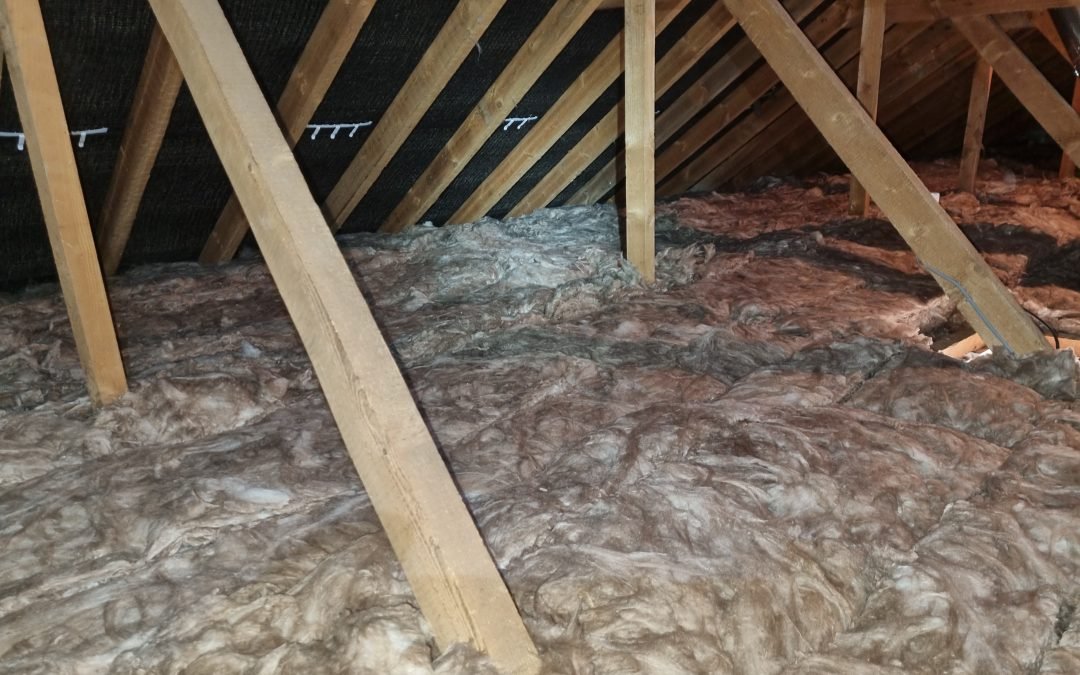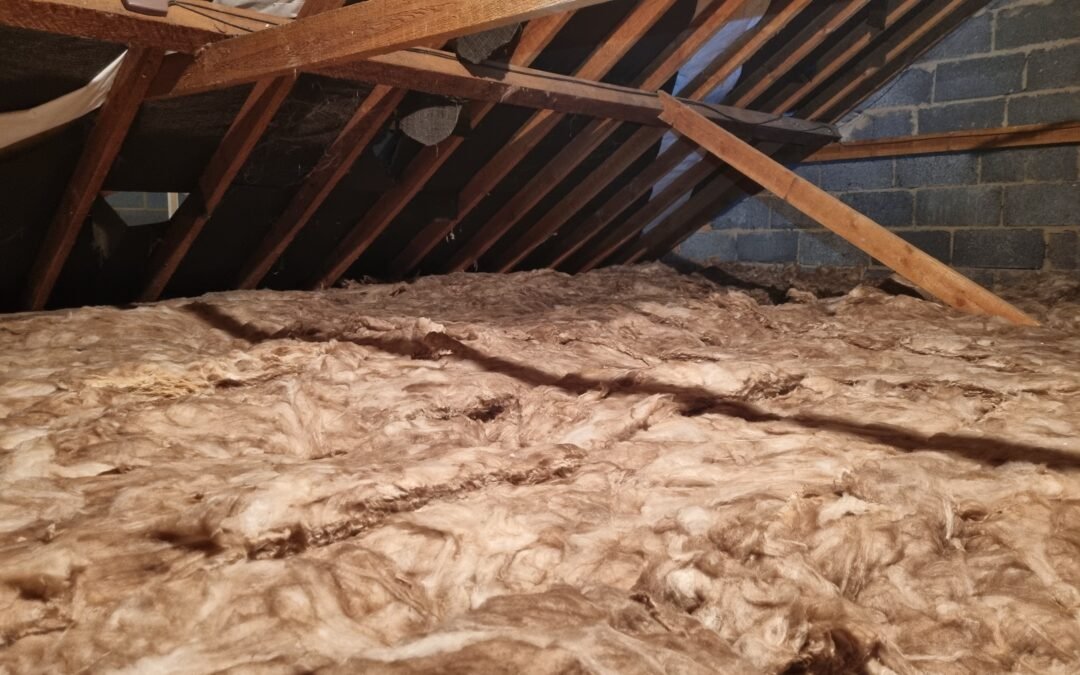Welcome to A to Z Energy Solutions Ltd, your ultimate guide to energy-efficient solutions for your home. In this article, we will explore different types of insulation materials and help you make an informed decision when choosing the right one for your home. Insulation plays a vital role in maintaining a comfortable living environment while reducing energy consumption. By understanding the characteristics and benefits of various insulation materials, you can enhance the energy efficiency of your home, reduce utility bills, and contribute to a greener future.
Understanding the Importance of Insulation:
Before diving into the types of insulation materials, let’s briefly understand the importance of insulation in your home. Insulation acts as a thermal barrier, preventing heat transfer between the interior and exterior of your house. By reducing heat flow, insulation keeps your home cool in the summer and warm in the winter, reducing the need for excessive heating or cooling systems. Additionally, insulation helps to minimise air leakage, improving indoor air quality and reducing noise pollution.
Types of Insulation Materials:
Fibreglass Insulation
Fibreglass insulation is one of the most common and cost-effective insulation materials available. It consists of fine glass fibres that trap air pockets, providing excellent thermal resistance. Fibreglass insulation is versatile and can be used in various areas such as attics or lofts, cavity walls, and basements. It is relatively easy to install and offers good fire resistance properties. However, proper protective measures should be taken during installation to avoid skin irritation.
Cellulose Insulation
Made from recycled paper products, cellulose insulation is an eco-friendly choice for homeowners. It is treated with fire-retardant chemicals, making it safe for use. Cellulose insulation is typically blown into attics and wall cavities, effectively reducing air leakage and providing excellent thermal performance. This material is particularly suitable for existing homes that need additional insulation or where irregular spaces need to be filled.
Spray Foam Insulation
Spray foam insulation is composed of two chemical components that combine to create an expanding foam when sprayed. This foam expands to fill gaps, cracks, and cavities, providing an airtight seal. Spray foam insulation offers exceptional thermal resistance and is ideal for insulating hard-to-reach areas. However, the savings to be made can vary significantly as it is usually sprayed on the roof rafters which means the loft space is still heated rather than trapping this heat at ceiling level to maximise savings. Professional installation is recommended due to the complexity of the process.
Mineral Wool Insulation
Mineral wool insulation, commonly known as rock wool or slag wool, is made from molten rock or industrial byproducts. It comes in the form of batts or loose-fill insulation. Mineral wool offers excellent fire resistance, sound absorption, and thermal performance. It is commonly used in areas where fire safety is a priority, such as around chimneys and in basements. However, mineral wool is denser and heavier than other insulation materials, making it slightly more challenging to install.
Reflective Insulation
Reflective insulation works by reflecting radiant heat away from your home. It consists of a layer of aluminium foil laminated onto various materials, such as cardboard or polyethylene bubbles. Reflective insulation is commonly used in attics, roofs, and walls. It is most effective in hot climates, where it helps to reduce the amount of heat transferred into the living space. However, it is important to note that reflective insulation alone may not be sufficient to provide comprehensive insulation in colder climates.
Choosing the Right Insulation Material:
When selecting the right insulation material for your home, several factors should be considered:
Climate: The climate in your region plays a crucial role in determining the appropriate insulation material. For colder climates, materials with higher R-values (thermal resistance) may be needed, while in warmer climates, materials with reflective properties can be beneficial.
Application: Consider the area of your home where insulation is required. Some materials are better suited for specific applications, such as attics, walls, or basements. Understanding the unique requirements of each space will help you choose the most suitable material.
Cost and Budget: Determine your budget and consider the long-term cost-effectiveness of different insulation materials. While some options may have a higher upfront cost, they can provide significant energy savings over time, resulting in lower utility bills.
Environmental Impact: If eco-friendliness is a priority, opt for insulation materials made from recycled or renewable resources. These materials not only reduce energy consumption but also contribute to sustainable living practices.
Choosing the right insulation material is essential for creating a comfortable and energy-efficient home. By considering factors such as climate, application, cost, and environmental impact, you can make an informed decision. A to Z Energy Solutions Ltd is dedicated to helping you navigate the world of insulation materials and other energy-efficient solutions. Contact us today for expert advice and reliable services to enhance the comfort and energy efficiency of your home. Remember, investing in insulation is an investment in your home’s future and the environment we all share.
The Benefits of Choosing The Correct Insulation Material
Selecting the right insulation material for your home is a crucial decision that can have a significant impact on your comfort, energy efficiency, and overall well-being. In this article, we will explore the numerous benefits of choosing the correct insulation material. From energy savings and improved indoor air quality to noise reduction and environmental sustainability, the right insulation material can transform your living environment and enhance your quality of life.
Energy Efficiency
One of the primary benefits of choosing the correct insulation material is improved energy efficiency. Insulation acts as a thermal barrier, reducing heat transfer between the interior and exterior of your home. By minimising heat gain in the summer and heat loss in the winter, insulation helps maintain a comfortable temperature without overreliance on heating or cooling systems. This results in significant energy savings and reduced utility bills over time.
Cost Savings
By reducing energy consumption, proper insulation can lead to substantial cost savings in the long run. With the right insulation material, you can create a well-insulated envelope for your home, minimising air leaks and reducing the need for excessive heating or cooling. As a result, you can enjoy lower energy bills while maximising the efficiency of your HVAC systems.
Enhanced Comfort
Choosing the correct insulation material can greatly enhance the comfort of your living space. Insulation not only helps maintain a consistent indoor temperature but also minimises drafts and cold spots. It creates a cosy environment throughout your home, making it more comfortable for you and your family to relax, work, and sleep.
Improved Indoor Air Quality
Insulation also plays a vital role in improving indoor air quality. The right insulation material acts as a barrier against outside pollutants, allergens, and airborne contaminants. It helps prevent the infiltration of dust, pollen, and outdoor pollutants, creating a healthier living environment. Additionally, insulation reduces condensation and moisture buildup, preventing the growth of mould and mildew, which can contribute to respiratory issues.
Noise Reduction
Another advantage of choosing the correct insulation material is noise reduction. Insulation helps create a sound barrier, absorbing and reducing airborne and impact noise from outside sources. This is particularly beneficial if you live in a busy area, near a highway, or have noisy appliances or machinery in your home. Proper insulation can significantly minimise noise pollution, allowing you to enjoy a quieter and more peaceful living space.
Environmental Sustainability
Choosing an insulation material with eco-friendly properties contributes to environmental sustainability. Many insulation materials are now available that are made from recycled or renewable resources. By opting for sustainable insulation options, you can minimise your carbon footprint and actively participate in creating a greener future. Furthermore, insulation reduces energy consumption, resulting in decreased reliance on fossil fuels and a reduced overall impact on the environment.
Selecting the correct insulation material for your home offers a multitude of benefits. From energy savings and improved comfort to enhanced indoor air quality and noise reduction, the right insulation material can transform your living space. Additionally, by choosing eco-friendly options, you contribute to environmental sustainability. A to Z Energy Solutions Ltd is here to help you make informed decisions about insulation materials and provide reliable services to ensure optimal insulation in your home. Invest in the correct insulation material today and reap the rewards of a more energy-efficient, comfortable, and sustainable living environment.




